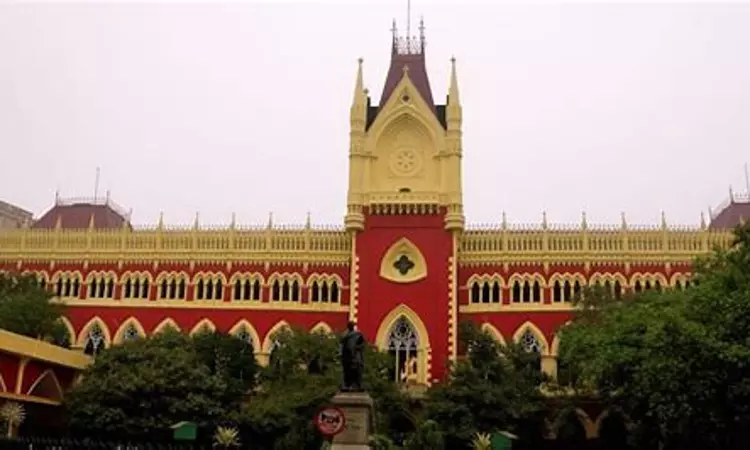- Home
- /
- High Courts
- /
- Calcutta High Court
- /
- Illegal Termination Violating...
Illegal Termination Violating Natural Justice Mandates Reinstatement, Not Mere Compensation: Calcutta HC
Pranav Kumar
3 July 2025 9:56 AM IST
Calcutta High Court: A single judge bench consisting of Justice Raja Basu Chowdhury set aside a labour court's order that denied reinstatement to a bus driver, despite finding his termination to be illegal. The court held that when termination violates principles of natural justice, reinstatement should be awarded instead of mere compensation. Background C Chitambaram worked as...
Calcutta High Court: A single judge bench consisting of Justice Raja Basu Chowdhury set aside a labour court's order that denied reinstatement to a bus driver, despite finding his termination to be illegal. The court held that when termination violates principles of natural justice, reinstatement should be awarded instead of mere compensation.
Background
C Chitambaram worked as a daily rated bus driver for the Directorate of Transport from 2008. His tenure was extended without interruption until 2015. However, in 2014, he was accused of pilfering over 20L of HSD oil from a govt bus. An FIR was filed and he was arrested.
Following his release on bail, he approached his employer to resume work. Despite multiple written representations, the Directorate refused to let him join. In July 2015, a show cause notice was issued against Chitambaram, referring to the FIR and the arrest as amounting to 'serious misconduct'. Chitambaram replied, and stated that the case against him was mere retaliation by two senior officers, for a complaint he made earlier that accused them of pilferage. Despite this, in October 2015, the directorate issued an order terminating his services retrospectively from the date of his arrest.
However, in 2018, Chitambaram was acquitted of all charges. Subsequently, Chitambaram demanded to be reinstated and a conciliation proceeding was initiated. However, the proceedings failed. Following this, the appropriate govt referred the matter to the labour court to decide whether Chitambaram could be reinstated post his acquittal. However, the labour court held that though the termination was illegal, he was only entitled to compensation for mental harassment. Aggrieved, he filed a writ petition challenging the labour court's order.
Arguments
Chitamabaram argued that the labour court had rightly found the termination to be illegal under Sections 25B and 25F of the Industrial Disputes Act, 1947 (“ID Act”), but it erred in not ordering reinstatement. Relying on Ramani Mohan Industries Pvt. Ltd. v. Second Industrial Tribunal (W.P. No. 955 of 1980), he argued that when the retrenchment violates Section 25F, reinstatement is a natural consequence. Further, he cited Surendra Kumar Verma v. CGIT (Civil Appeal Nos. 632-635 of 1980), to argue that the exceptions to reinstatement are not applicable here. He argued that the labour court wrongly denied him any relief, even though he worked continuously for years.
On the other hand, the employer restricted their argument to the jurisdiction of the labour court. They argued that the reference made by the appropriate govt only concerned reinstatement, and not the legality of the termination. Thus, they argued that the labour court could not have decided that issue. Relying on Municipal Corporation of Delhi v. Sandeep Yadav, 2024:DHC:4704, they submitted that the labour court went beyond the scope of its reference by declaring the termination illegal.
Court's Reasoning
The court discussed whether first, the Labour court had the jurisdiction to examine the legality of termination, and second, whether it should have ordered reinstatement after finding the termination to be illegal.
On the scope of reference, the court held that the labour court was not confined to a literal reading of the referral question. The court explained that the demand for reinstatement was directly related to the legitimacy of the termination. Thus, the court held, that determining whether the termination was justified, is implicit in assessing the demand for reinstatement. Consequently, the court ruled that the labour court had jurisdiction to decide on the legality of termination.
Further, the court noted that there were multiple procedural lapses in the proceedings conducted before Chitambaram's termination: the key witness statement was recorded in his absence, there was no opportunity to cross examine, and no chance was given to lead evidence. The court found that the termination was based solely on an FIR, and there was no departmental enquiry conducted even after his acquittal. This, the court held, violated principles of natural justice.
Further, the court noted that once the termination was found to violate natural justice principles, the labour court was required to grant full relief including reinstatement. Citing Deepali Gundu Surwase v. Kranti Junior Adhyapak Mahavidyalaya (Civil Appeal No. 6767 of 2013), the court ruled that while back wages may not be automatic, reinstatement should ordinarily follow when the termination is found illegal.
Thus, the court held that while Chitambaram had no right to back wages, he was entitled to reinstatement. Consequently, the court allowed the writ petition and set aside the labour court's order.
Date decided: 16 June 2025
Neutral Citation: WPA 862 of 2022 & WPA 938 of 2022
Counsel for Shri C. Chitambaram: Mr. Gopala Binnu Kumar
Counsel for the Directorate of Transport: Mr. Tulsi Lall



